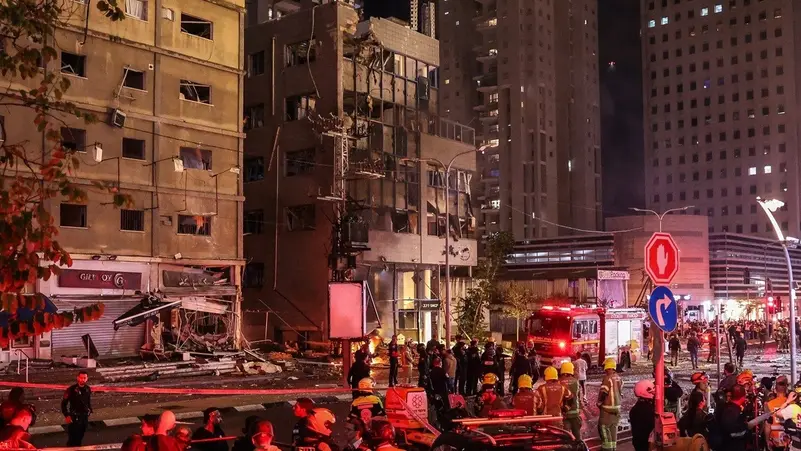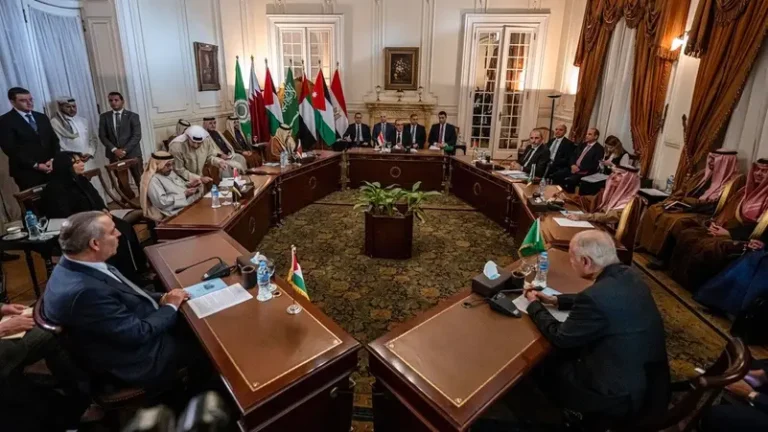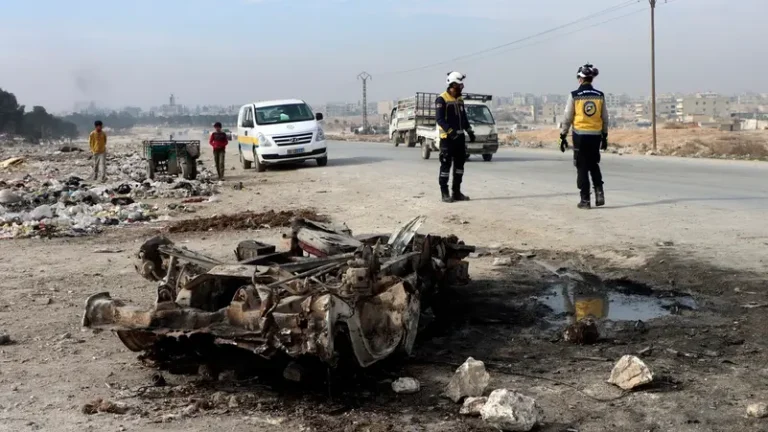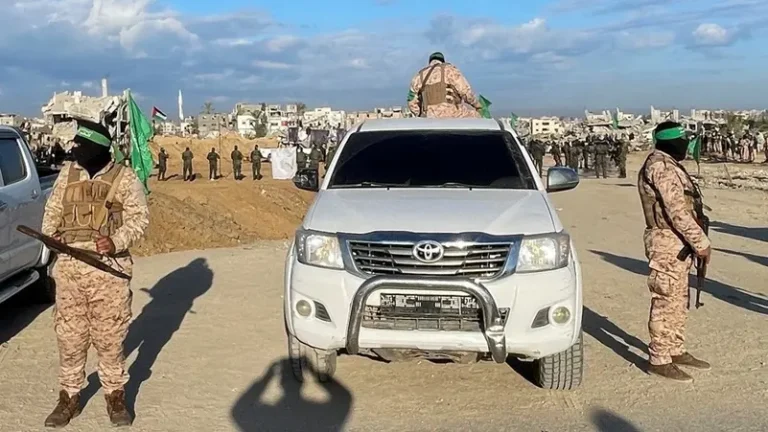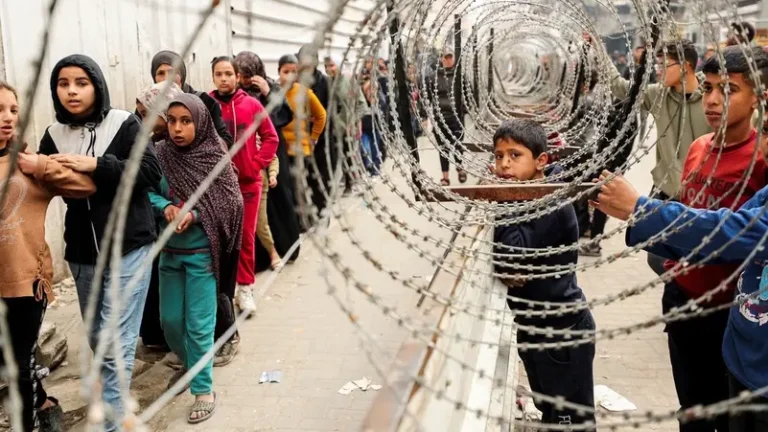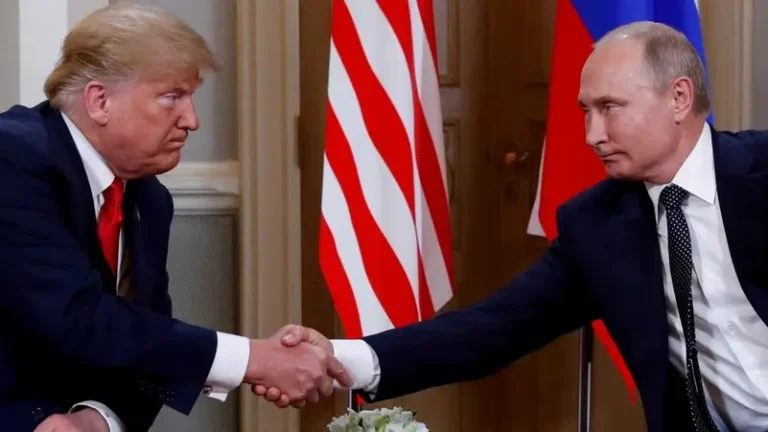Lebanon agreed to most of the US draft proposal; Netanyahu says Israel will keep attacking regardless
US President Joe Biden’s special envoy for Lebanon left Washington for Beirut on Monday in a last-ditch effort by the outgoing administration to mediate a ceasefire between Lebanese Hezbollah and Israel.
Beirut acknowledged that it had agreed to a US draft proposal with a few remarks, which may result in a complete breakdown of the talks if not resolved.
Amos Hochstein was set to travel to Lebanon on Monday before postponing his trip early in the morning out of frustration with the lack of an apparent response to Washington’s draft. According to a senior US official, hours later, he was wheels up for Beirut after receiving a message from Beirut.
A top aide to Parliament Speaker Nabih Berri told Reuters on Monday that Lebanon and Hezbollah had agreed to the US proposal “with some comments” in a written response.
Al Arabiya English reported on Sunday night that Lebanon and Hezbollah had expressed openness to a ceasefire based on Washington’s proposal.
Initially, Israel wanted explicit language in the proposal allowing them the freedom to strike targets inside Lebanon at will, if deemed a threat. Lebanon vehemently rejected. Israel also sought a written guarantee from Washington that it would support Israeli attacks inside Lebanon against Hezbollah targets when agreed upon.
However, the language adopted in the latest draft is ambiguous about the right of both sides to self-defense, according to Lebanese officials who considered this a lure. They continue to have reservations about that.
The French foreign minister said last week that Israel was adamant about being allowed to strike any time it wanted. “That is not compatible with the sovereignty of a strong country,” Jean-Noel Barrot was quoted as saying.
The other issue Lebanon had was with the formation of a new international monitoring force to ensure the implementation of UN Security Council Resolution 1701, which ended the July 2006 war between Hezbollah and Israel.
The international force, separate from the UN peacekeeping force (UNIFIL), would include some Arab participation, Germany, the United Kingdom, France, and the US. Hezbollah reportedly rejected the involvement of Germany and the UK.
Sources familiar with the ongoing negotiations say the basis for the US proposal is based on the full implementation of Resolution 1701. It was never fully implemented by either side. No weapons were to be present other than those of the Lebanese Armed Forces south of the Litani River, and Israel was supposed to entirely withdraw from occupied Lebanese lands as stipulated by the United Nations.
The White House has not responded to repeated requests for comment.
Secretary of State Antony Blinken met with Saudi Foreign Minister Prince Faisal bin Farhan on the sidelines of the G20 conference in Brazil on Monday. They discussed efforts to reach a diplomatic resolution to the war between Lebanon and Israel “that fully implements United Nations Security Council Resolution 1701 and allows citizens on both sides of the border to return to their homes,” the State Department said. Blinken also underscored efforts to increase the delivery of humanitarian assistance in Gaza and Lebanon and expressed appreciation for Riyadh’s efforts to provide aid, the State Department said in a readout of the meeting.
Current US officials have also warned that efforts to end the war in Lebanon will not be open-ended. And it remains to be seen whether a ceasefire in Lebanon will be a priority for the incoming Trump administration, which will be faced with several foreign policy dilemmas handed over by the Biden administration.
Officials familiar with last week’s meeting between Biden and President-elect Donald Trump told Al Arabiya English that the latter conveyed his support for a deal to end the war as soon as possible.
Israel’s stance remains unclear, while Prime Minister Benjamin Netanyahu has reportedly expressed unwillingness to “gift” Biden a foreign policy success in negotiating a ceasefire.
On Monday, Netanyahu said that Israel would continue to hit Hezbollah even if a ceasefire deal was reached.
The Israeli army struck deep in the heart of Beirut on Monday, killing several civilians, including children. It is unclear what or who they were targeting.
And Hezbollah responded by striking deep targets inside Tel Aviv as well as other Israeli military sites.
“It’s all in the details of the ‘some comments.’ Rejecting the US proposal outright while Israel is stepping up military pressure would have been diplomatic malpractice. So, this is the expected response from Lebanon. Let’s see what comments Hezbollah & Iran have for Hochstein,” Firas Maksad, a senior fellow at the Washington-based Middle East Institute think-tank, said in a post on X.

